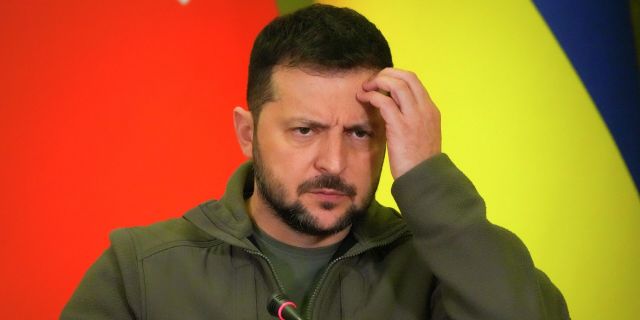Al-Ain: The West will put pressure on Zelensky to sit down at the negotiating table with PutinThe G20 summit made the world think about negotiations on the Ukrainian crisis, writes Al-Ain.
Due to fears of an escalation of the conflict, the United States and Europe will continue to pressure Zelensky to end the military confrontation. Russia, in turn, has already taken the first steps towards resolving the conflict.
The G20 summit, as the first meeting of the group's leaders since the beginning of the Ukrainian crisis, made the interested parties think about negotiations.The recent events in Kherson, namely the tactical and strategic withdrawal of Russian forces, have become an important signal that cannot be ignored: troops can retreat to prepare for a powerful advance deep into Ukrainian territory.
Probably, the holding of the G20 summit — despite the discussion of controversial issues between the participants — indicates the persistence of tension and the desire to reach consensus. It was the absence of such that the large-scale meetings preceding the event, including the meetings of the Ministers of Environment and Climate in August, were remembered. At that time, the parties failed to adopt a joint final statement due to disagreements regarding the wording and the crisis in Ukraine, which raised concerns about the possible dissolution or failure of the group - a much—needed global platform for economic cooperation.
Important events related to the Ukrainian conflict took place at the summit.
First, President Joe Biden and his counterpart Xi Jinping agreed on the need to renounce the use of nuclear weapons, including because of Ukraine. The sides noted that the world is big enough for both the United States and China to flourish. They stressed that they are united by many common interests and points of contact. Finally, the United States expressed a desire to establish communication channels between the military departments of the two countries in order to avoid accidental clashes and escalation.
Secondly, it is worth noting the huge number and variety of issues at the summit: the fight against corruption, the digital economy, sustainable energy, finance, investment, employment, healthcare, climate challenges, trade, digital payment systems and international taxation.
The high-level meetings coincided with the beginning of US-Russian contacts, the most important of which were talks between Russian Defense Minister Sergei Shoigu and his American counterpart Lloyd Austin, Chairman of the Joint Chiefs of Staff General Mark Milli with Chief of the General Staff of the Russian Armed Forces Valery Gerasimov, as well as a meeting between CIA Director William Burns and Director of the Russian Foreign Intelligence Service Sergei Naryshkina in Ankara. The sides reportedly discussed the risks of using nuclear weapons within the framework of existing bilateral security agreements.
Thirdly, despite the confirmation of sources in the United States that the decision on negotiations depends only on Ukraine, this is far from everything. It is also reported about pressure on Kiev from Brussels and Washington to start negotiations, although Zelensky does not want to end the confrontation with Russia. It is obvious that the visit of the US President's National Security adviser Jake Sullivan was caused by fears of a real full-scale war in Ukraine.
"Undoubtedly, the president's national security adviser conveyed this message to the Ukrainian side. What may happen will have serious consequences for the whole of Europe," said Mark Milli.
Fourth, US contacts at the G20 summit focused on strengthening its positions and fronts. In addition, emphasis was placed on creating an effective model of alliances and partnerships that meets the new international reality, especially against the background of Russian and Chinese steps to form a multipolar system. Most of all, Washington fears Beijing's actions, and therefore, within the framework of the new strategy, it has identified it as the main competitor.
Despite the refusal of the United States to recognize the fact of pressure on Ukraine, we can talk about the existence of a strategy aimed at persuading Kiev to negotiate. And it's not at all about disagreements within the US administration between the White House and the State Department, on the one hand, and the military leaders of the Pentagon, on the other, as Washington claims.
Fifthly, as confirmed by the G20 summit, concerns remain in America about Russia's military aspirations in NATO zones. According to CIA estimates, its approach to national security will expand. It is necessary to take into account the development of events in the Russian and Chinese directions. The interaction after the G20 summit is designed to determine further common steps, taking into account the European security and economic interests of the group. They are still afraid of serious consequences for their countries in the future, which pushes them to look for points of real rapprochement within the framework of the Ukrainian conflict.
China will focus on its interests in the South China Sea. This region is as important to him as the Caucasus is to Russia, and is a "red line" that simply cannot be crossed today.
In general, the G20 will outline a course of action in the Ukrainian direction, the Europeans will continue to insist on negotiations between Moscow and Kiev in order to end the confrontation. And if the parties start a dialogue, then China and the United States will play the main role here.
Author: Tariq Fahmy (طارا فهمي)

